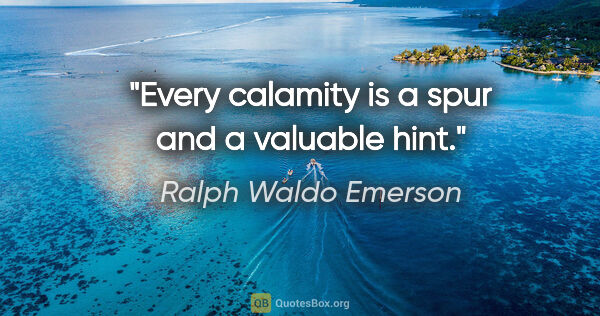Valuable Quotes (page 8)
By giving too much importance to fine actions one may end by paying an indirect but powerful tribute to evil, because in so doing one implies that such fine actions are only valuable because they are rare, and that malice or indifference are far more common motives in the actions of men.
Albert Camus
You are burnt beyond recognition," he added, looking at his wife as onelooks at a valuable piece of personal property which has suffered somedamage. She held up her hands, strong, shapely hands, and surveyed themcritically, drawing up her fawn sleeves above the wrists. Looking atthem reminded her of her rings, which she had given to her husbandbefore leaving for the beach. She silently reached out to him, and he, understanding, took the rings from his vest pocket and dropped theminto her open...
Kate Chopin
We do not believe in ourselves until someone reveals that deep inside us something is valuable, worth listening to, worthy of our trust, sacred to our touch. Once we believe in ourselves we can risk curiosity, wonder, spontaneous delight or any experience that reveals the human spirit.
E. E. Cummings
If you try to write posthumously, however, fashion doesn’t apply. You step off the catwalk, ignoring this season’s trends and resigning yourself to being unfashionable and possibly unnoticed, at least for a while. As Kurt Woolf, Kafka’s first publisher in Germany, wrote to him after Kafka’s book tanked, “You and we know that it is generally just the best and most valuable things that do not find their echo immediately.” Fashion is the attempt to evade that principle: to be the echo of someone...
Jeffrey Eugenides
Their violence (the jungle wars of the '70s), and all violence for that matter, reflects the neutral exploration of sensation that is taking place, within sex as elsewhere and the sense that the perversions are valuable precisely because they provide a readily accessible anthology of exploratory techniques.
J. G. Ballard
I believe order is better than chaos, creation better than destruction. I prefer gentleness to violence, forgiveness to vendetta. On the whole I think that knowledge is preferable to ignorance, and I am sure that human sympathy is more valuable than ideology. I believe that in spite of the recent triumphs of science, men haven't changed much in the last two thousand years; and in consequence we must try to learn from history.
Kenneth Clark
Readers may be divided into four classes:1) Sponges, who absorb all that they read and return it in nearly the same state, only a little dirtied.2) Sand-glasses, who retain nothing and are content to get through a book for the sake of getting through the time.3) Strain-bags, who retain merely the dregs of what they read.4) Mogul diamonds, equally rare and valuable, who profit by what they read, and enable others to profit by it also
Samuel Taylor Coleridge

